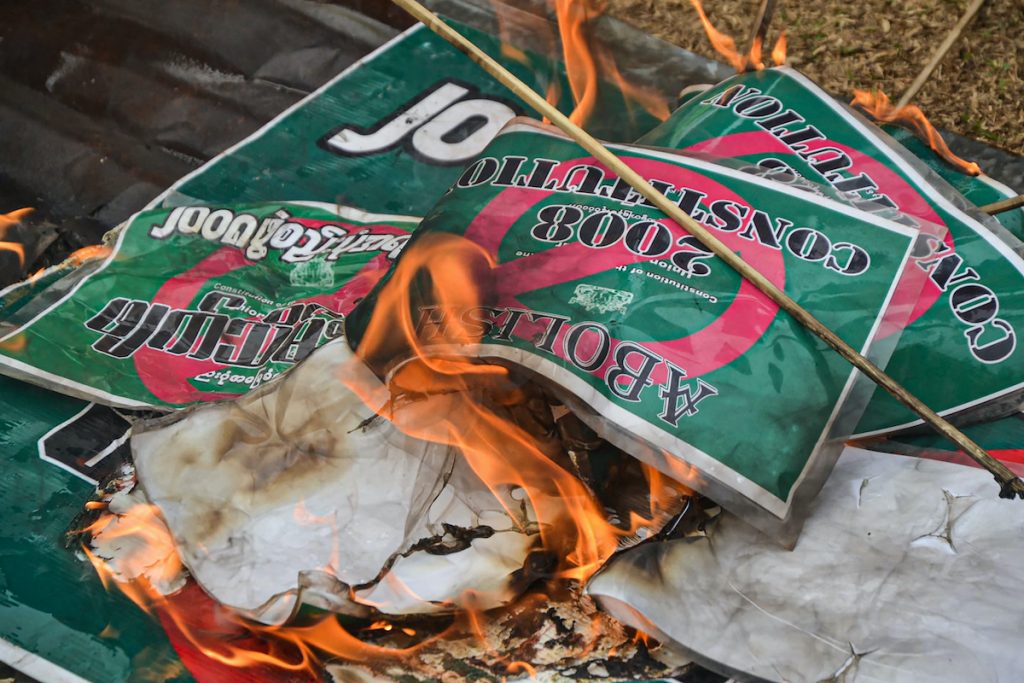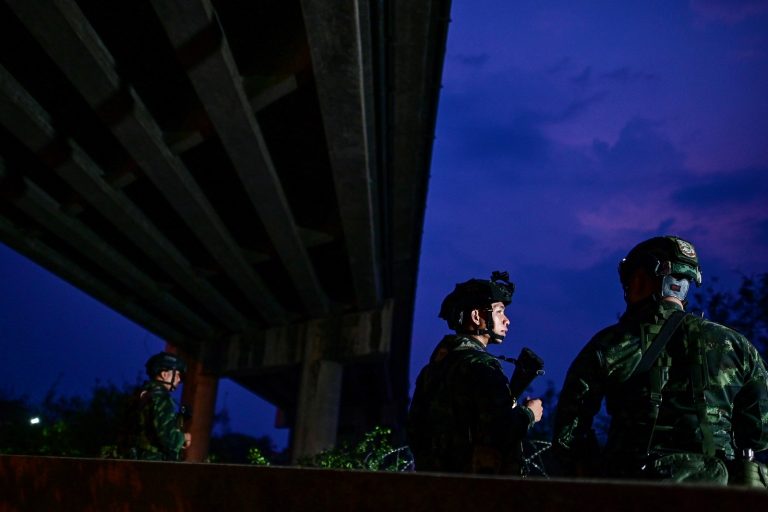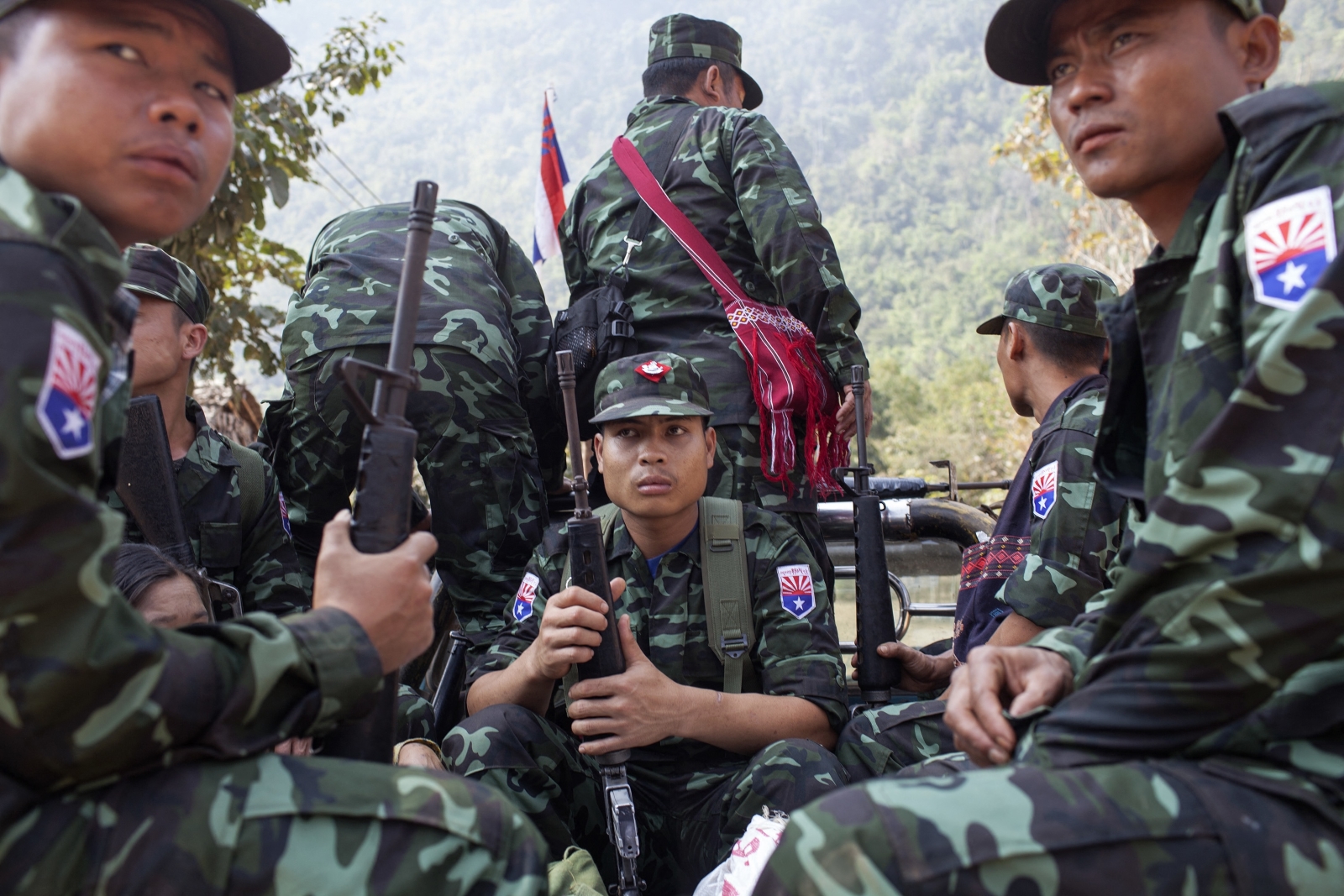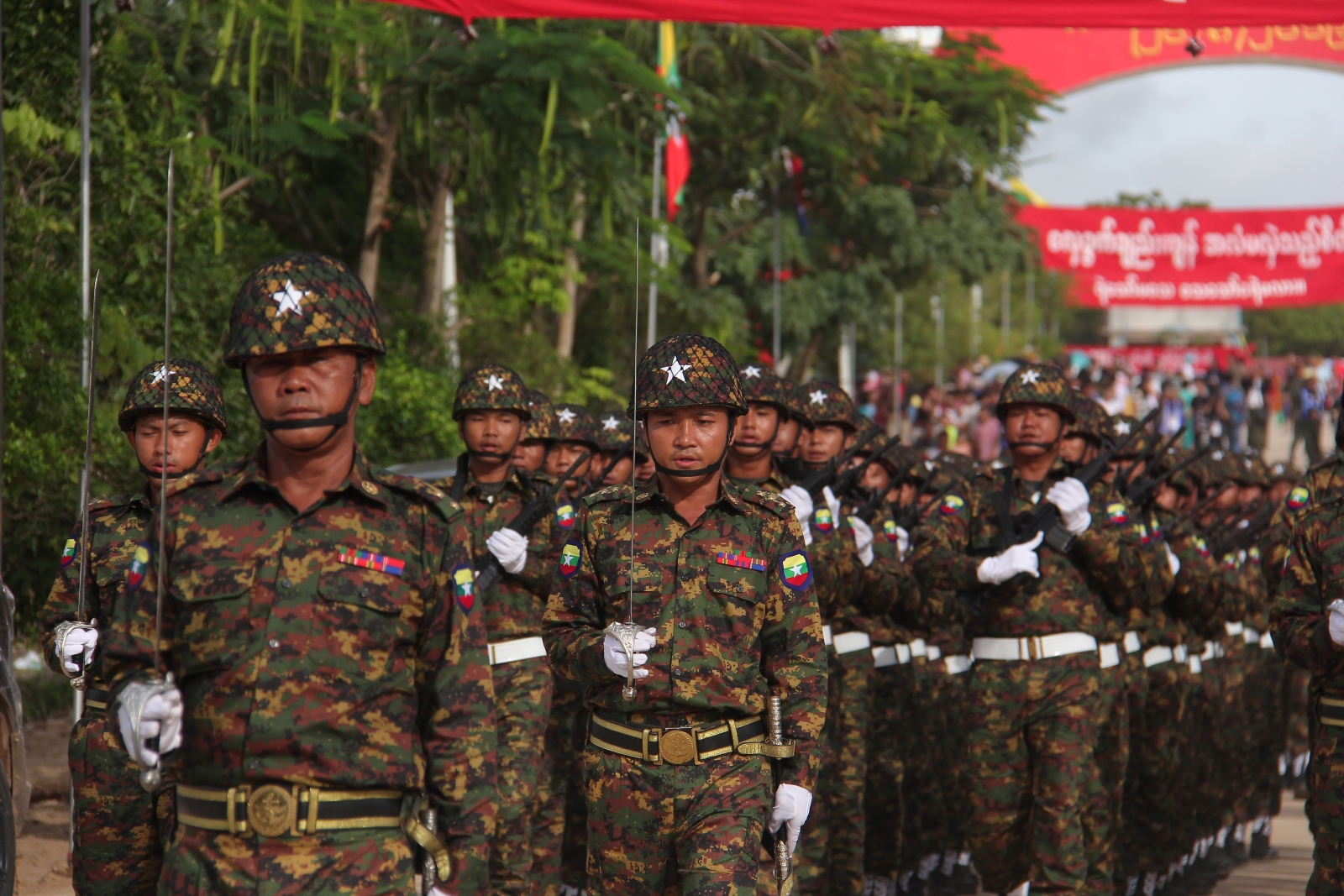On Saturday, the Karen National Union condemned the use of “excessive force by engaging in non-stop bombing and air strikes” from March 27 – 30, which have “caused the deaths of many people including children”.
By AFP
The Karen National Union has accused the Myanmar military of deploying “excessive force”, saying on Saturday that continuous air strikes have displaced more than 12,000 unarmed civilians, including children.
Late last month, the ethnic armed group seized a military base in eastern Kayin state, killing 10 army officers. The junta retaliated with air strikes.
The KNU has been a vocal opponent of the military junta – which ousted civilian leader Daw Aung San Suu Kyi from power two months ago – and said it is sheltering hundreds of anti-coup activists.
On Saturday, the KNU condemned the use of “excessive force by engaging in non-stop bombing and air strikes” from March 27 – 30, which have “caused the deaths of many people including children”.
“The air strikes have also led to the further displacement of more than 12,000 people who have fled their villages and caused a major humanitarian crisis.”
Junta spokesperson Zaw Min Tun said the military has only been targeting the KNU’s 5th Brigade – which led the seizure of the military base and killed officers.
“We had an air strike on that day only,” he told AFP.
“We have signed a nationwide ceasefire agreement … If they follow the NCA, there is no reason for conflict to happen,” Zaw Min Tun said.
Ethnic Karen local media and rights groups have reported multiple bombings and air strikes across the state over recent days.
About 3,000 people fled to neighbouring Thailand on Monday, crossing the Salween River to seek shelter. But most returned to Myanmar by Wednesday, which Thailand claimed was “voluntary”.
Myanmar has been in turmoil since the military seized power on February 1, triggering a massive uprising across the country with protesters demanding the restoration of the elected government.
Information flow in the country has also been throttled, with the junta cutting wifi services, mobile data and imposing a nightly internet blackout that has gone on for nearly 50 days.
Myanmar’s border regions are largely controlled by various ethnic armed groups that have long agitated for greater autonomy.
Territory in the northern Kachin state has also seen a recent step-up in clashes between the Tatmadaw and the Kachin Independence Army.







